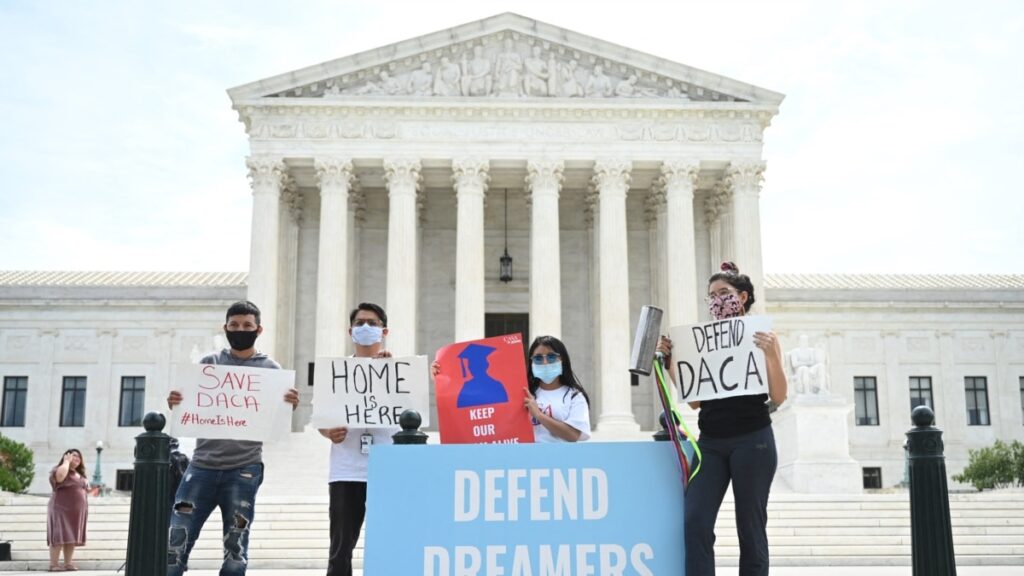
IN DIFFERENT COURTS | DACA recipients concerned about other possible court decisions(Photo/EFE)
THEY ASK THE CONGRESS TO PROTECT DREAMERS
Alejandra Arredondo/ Agencia Efe
Haga click aquí para leer la versión en español
Uncertainty has taken over the more than half a million dreamers in the United States after the expected ruling of an appeals court, which considered that the Deferred Action for Childhood Arrivals (DACA) program is illegal. This court, however, left DACA standing until a lower court reviewed the case. Current permits may continue to be renewed.
“The idea of being from court case to court case and never knowing when these decisions are going to come is very stressful, exhausting and you can’t live like that,” said Juliana Macedo, a 36-year-old Brazilian who obtained DACA when it was announced in 2012. In the ruling, the judges agreed with the Texas court that ruled in favor of ending DACA in 2021 but allowing beneficiaries like Macedo to renew their work permits.
The court decided to send the case back to the lower court to review a new regulation issued by the administration of President Joe Biden in August of last year that sanctions the program in the federal registry. For both Macedo and other migrant rights activists, this decision prolongs the wait for an announced death for DACA in court.
Upcoming decisions
“It’s just a matter of time. We know that Judge Hanen (of the lower court in Texas) has already said that he considers the DACA policy itself to be illegal,” argued Macedo, who works defending the interests of dreamers like her. in the organization United We Dream.
The ruling “makes it absolutely clear” that the courts will follow a path that “ends up revoking DACA,” Todd Schulte, director of FWD.us, said in a statement.
“While we don’t know exactly when future court action will come, we do know that DACA’s chances of surviving much longer are significantly worse,” he added. The program, which protects from deportation and allows people who were brought to the US when they were minors to work legally, was launched by the Democratic government of Barack Obama (2009-2017).
in the hands of congress
Former President Donald Trump decided in the first year of his term to end DACA, which triggered a domino effect of lawsuits and counter-suits in court that led to the current situation. For activist groups, the only permanent solution that would give stability to the dreamers, who are on average 28 years old and have lived in the US for more than 20 years, is for Congress to pass a law on the subject.
The Congress, with a Democratic majority in both Houses, could change its composition in January of next year, when the seats are renewed after the midterm elections that are held in just over a month. The question now, said Julia Gelatt, an expert on migration issues at the Migration Policy Institute, is whether lawmakers will feel enough pressure to pass legislation to help dreamers.
You may also like:
DoorDash Announces Winners of its Colorado Restaurant Accelerator
Claps aiming to reconnect law enforcement with the community
Former Sheriff McIntosh to use experience if elected






otras noticias
NBA expulsa de por vida a Jontay Porter por apuestas
Negada la petición de “El Chapo”
Al menos 19 mujeres enferman tras inyecciones de bótox falsificadas o ilegales